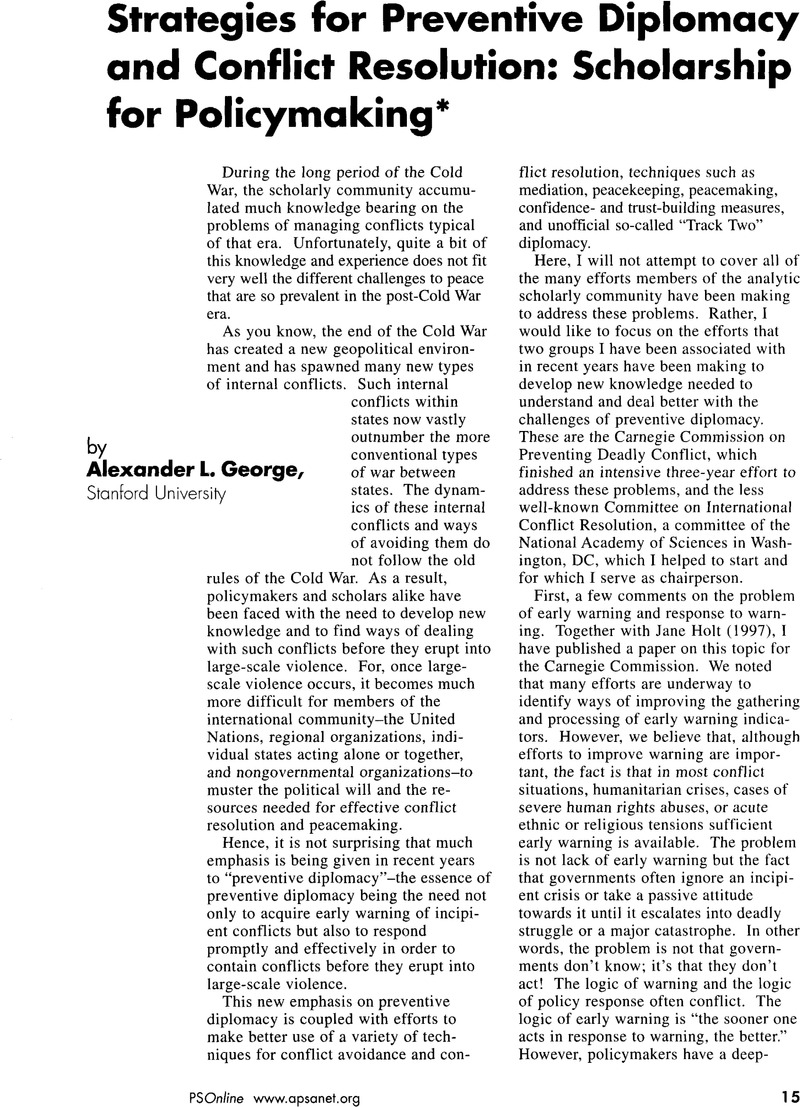Crossref Citations
This article has been cited by the following publications. This list is generated based on data provided by Crossref.
Sidibé, Doudou
2020.
Negotiating peace agreements in internal conflicts: What Perspectives?.
Négociations,
Vol. n° 33,
Issue. 1,
p.
41.
Medina, Cristián
and
Harvey, Hugo
2021.
El “caso Honecker”. 1991-1992: Una Crisis Diplomática Asimétrica (CDA)..
Cuadernos de Historia Contemporánea,
Vol. 43,
Issue. ,
p.
279.



